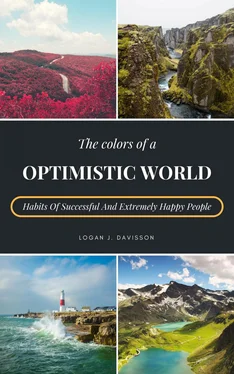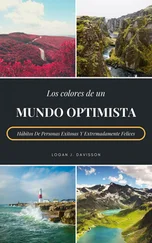The water-soluble vitamins are excreted more through sweat and urine. If the vitamin supply is neglected, then this can lead not only to a vitamin deficiency over a longer period of time, but also to a deficit with regard to antioxidants, since thereby more and more free radicals spread in our body. The lack of vitamins or nutrients is expressed by rapid fatigue, lack of appetite, performance deficits and attacks of weakness. High susceptibility to infection can also be a clear sign of vitamin deficiency and a weakened immune system.
Vitamin Bis basically composed of eight different vitamins of the B group. These include thiamine, vitamin B1, riboflavin, niacin, pantothenic acid, pyridoxine, biotin, folic acid and cobalamin, vitamin B12, which are particularly important for energy production, blood formation, skin and nails as well as for thyroid function. Vitamin B also influences nerve strength and our sensitivity to stress. These vitamins are found in cereals and pulses, in meat, soy, dairy products and also in germs. Vitamin B12, however, is almost completely absent from plant foods, but can be stored in our bodies. Frequent tingling in arms and legs may be an indication of a deficiency of these vitamins, as well as dropsy and indigestion, fatigue and cramps. An increased need is not only the case with athletes, but also with diets, as well as with the taking of medicines such as antibiotics or the birth control pill. Since UV light and prolonged cooking have a negative effect on these vitamins, the vegetables should only be steamed so that their nutritional values are not lost. For your vitamin water you can use leaves from lamb's lettuce, which contains a lot of folic acid. But also sesame seeds or sunflower seeds. The alga Chlorella contains large amounts of vitamin B12.
As has already been mentioned several times, vitamin Cis not only found in fruit but also in some vegetables. According to the DGE, the German Society for Nutrition, our body is dependent on around 100 milligrams of vitamin C daily in order to function normally. Vitamin C is important for the energy metabolism, for our immune system, as well as for the formation of collagen. Vitamin C is an excellent antioxidant that can protect our body cells from oxidative stress. Especially during sports or other physical exertion it is important to cover the need for this vitamin well, so that our immune system can remain intact through the efforts. Athletes may need 200 milligrams per day, depending on their activity. Higher quantities are generally not recommended, as otherwise they are excreted unprocessed. A lot of vitamin C is found in citrus fruits, berries and kiwi, as well as in spinach, garlic and garden cress. The need for ascorbic acid or vitamin C can therefore also be met relatively easily by athletes if they ensure a balanced diet with plenty of fruit and vegetables and additionally enrich their vitamin water with these ingredients. So it's not just a question of taste, but of covering the higher demand. The skin contains many more antioxidant compounds, which is why the fruit for the flavoured water should not be peeled, but only divided.
Vitamin Dor pantothenic acid is present in meat, fish and wheat. It has a supporting effect on our energy metabolism, on the muscle functions, the immune system, as well as for the teeth and bones. Vitamin D is often also called sun vitamin, as we can absorb a large part of our requirements through solar radiation. However, this ability decreases with increasing age, which increases the risk of osteoporosis from the age of 65. This fat-soluble vitamin is especially important for vegans, as well as for people who live mainly in dark rooms. On average, only two to four micrograms of vitamin D are absorbed through food. However, the recommended daily requirement is 20 micrograms. Large amounts of pantothenic acid are found in fatty fish, but small amounts may also be found in mushrooms, avocados and eggs. Depending on the sport, it may be advisable to use dietary supplements to prevent deficiency symptoms. Vitamin D is also available in powder form, which is of course ideal for the preparation of vitamin water.
Vitamin Eis contained in many skin care products, which is why it is often referred to as a vitamin for beauty. In addition, this vitamin is important for almost all cells, as it has an important influence on cell division and also strengthens and protects it very well. Vitamin E is also a good antioxidant as it can neutralize the free radicals in our body. As athletes are exposed to heavy stress during intensive training, vitamin E is particularly important for cell protection. The recommended daily requirement for adults is between 12 and 14 milligrams. Depending on the activities, athletes may need twice as much. This fat-soluble vitamin is found in wholemeal products, vegetable oils, as well as in almonds and nuts. A lack of vitamin E can lead to nervousness and significant mood swings, joint pain, delayed wound healing and a complete loss of physical and mental performance. Vitamin E is therefore absolutely necessary, as a deficit can also lead to sensory disorders and coordination problems. This clearly shows that this vitamin is much more than just a beauty vitamin. Vegetables such as parsnips, pumpkin, spinach, cabbage and paprika are suitable for vitamin water.
Vitamin Kcan protect us from many diseases, including cancer. It regulates blood coagulation and is involved in bone formation. This fat-soluble vitamin also keeps our blood vessels clean, as it prevents the available calcium from settling in the arteries as plaque, which leads to calcification of the artery walls. A deficiency of vitamin K can adversely affect blood coagulation. Vitamin K is present in most green plants, leaves, but also in liver and eggs. According to the German Society for Nutrition, the recommended dose is between 60 and 70 micrograms for adults, or about twice that for competitive athletes. The leaves of beetroot, parsley, chives and avocados are suitable for the vitamin water of athletes. But grass powder, such as kamut grass or wheatgrass, also contains a great deal of vitamin K. By the way, wheatgrass is a real healer, because this food contains an extraordinary density of nutrients. Barley grass has many more vitamins, minerals, enzymes and bioflavonoids than other green plants, which is why it is also one of the best known antioxidants. It lowers cholesterol levels, improves the skin's elasticity and also activates the intestinal flora.
The increased need for vitamins among athletes is due to the following reasons:
- Higher energy metabolism
- Higher metabolism and need for proteins, fat and carbohydrates
- More oxidative stress or free radicals through sport
- More susceptible immune system
- Higher oxygen transport necessary
- Higher losses due to sweating
- Higher consumption through muscle work
Not only vitamins are vital for athletes, as minerals also play a considerable role. For example, many competitive athletes lack iron, calcium, magnesium and zinc. The intake of sodium is also often neglected in the diet. By the way, a deficit can be expressed not only in a drop in performance, but also through a higher risk of injury.
Even if you are not a competitive athlete yourself, but only a completely normal recreational athlete, you should absolutely pay attention to a balanced supply with the valuable nutrients. Wrong eating habits, with too much fat or sugar, for example, can lead to health problems and even serious illnesses during sports, stress or other physical and mental strain.
As an athlete, you must also pay attention to the minerals, as an intensive workout also excretes more minerals through the sweat. This can endanger the electrolyte balance in particular, because without minerals we cannot exist at all. In principle, each individual mineral also has a different effect, which, however, can also contribute to the same physical processes. Minerals are actively involved in our metabolism, they support the transport of oxygen and are also involved in the mineralisation of teeth and bones.
Читать дальше












